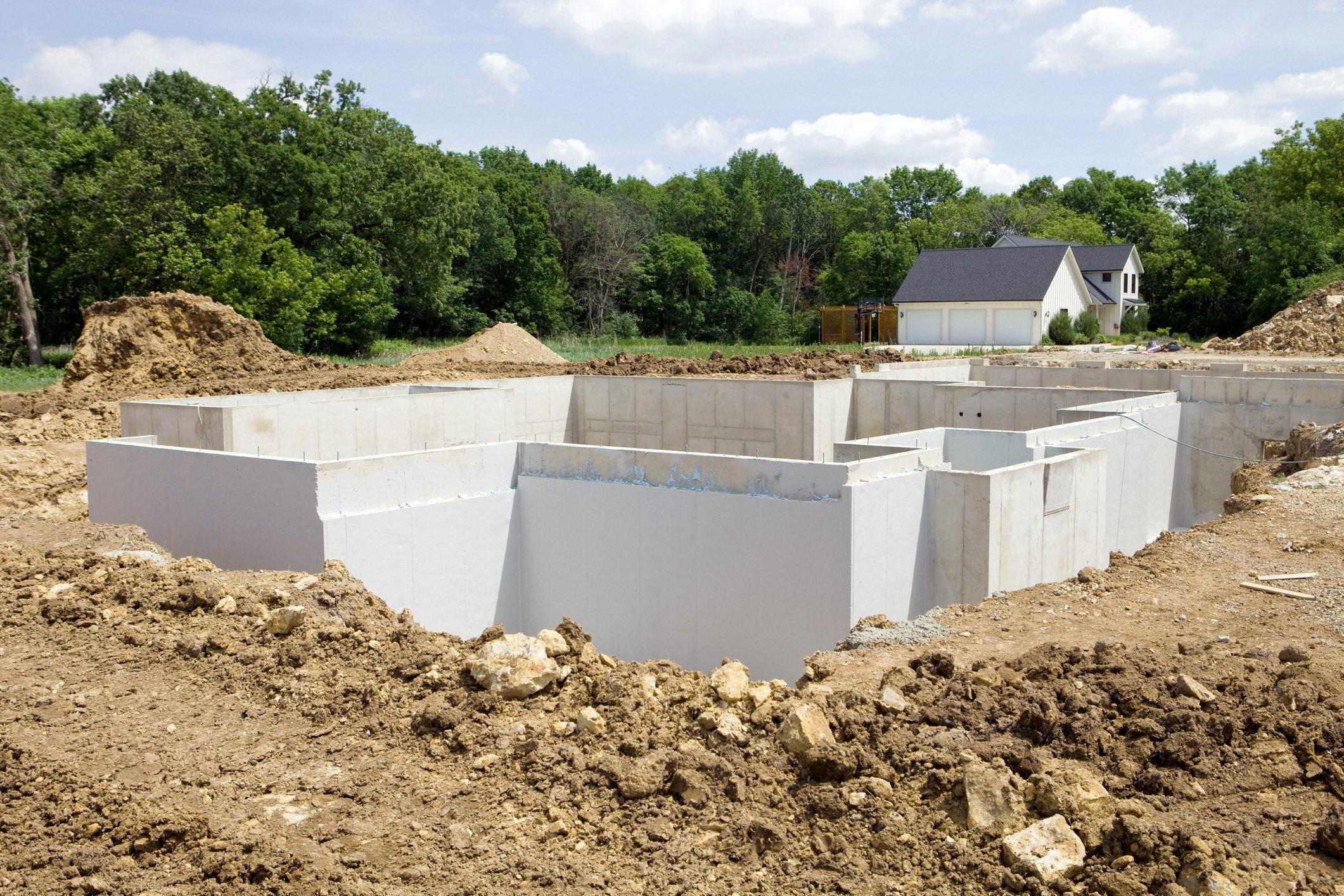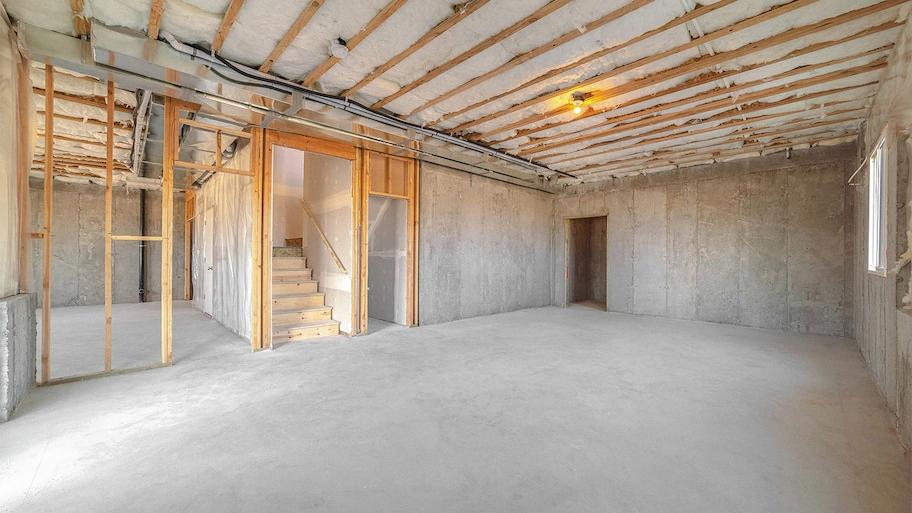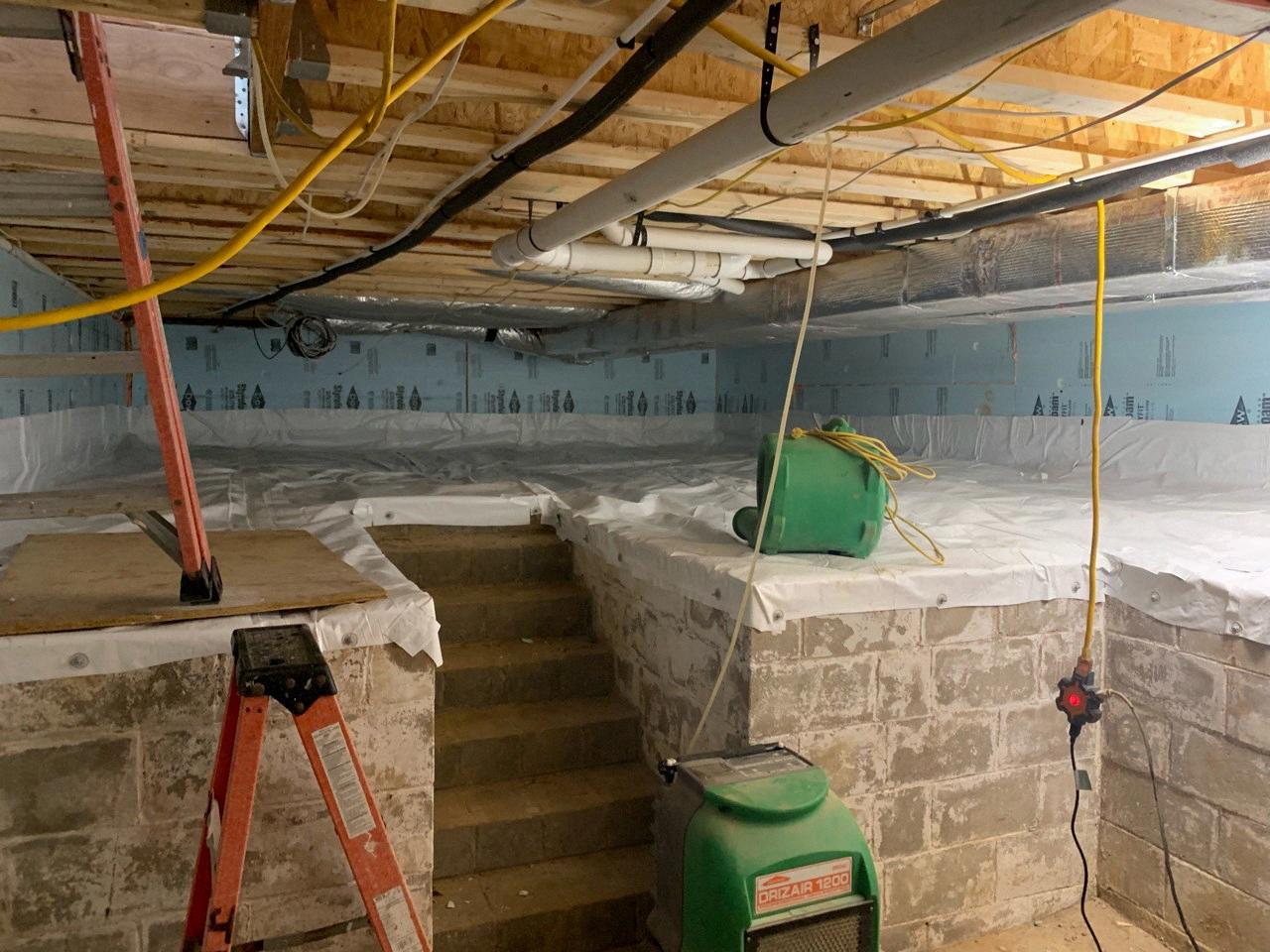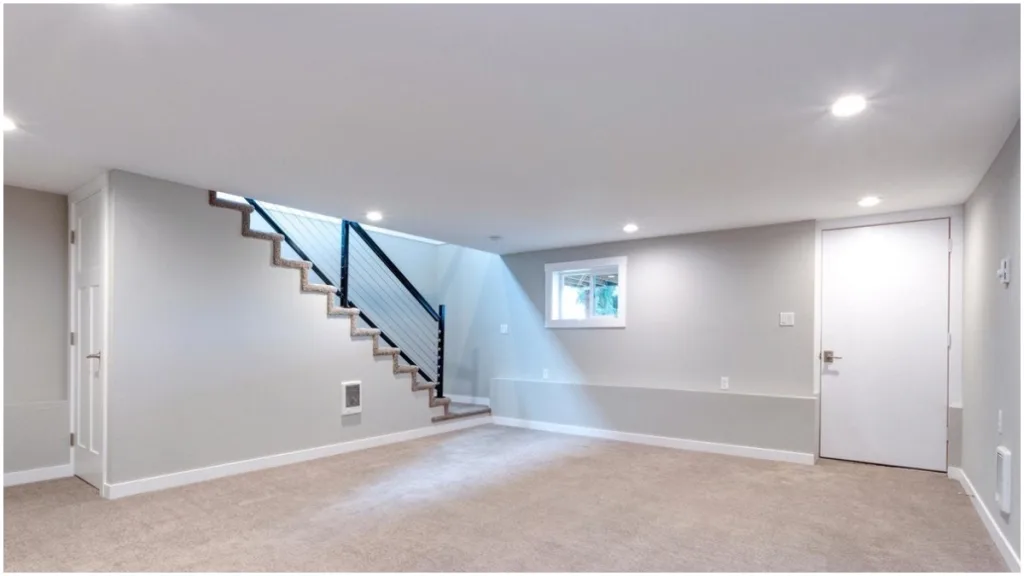Basements are a wonderful addition to any home, offering extra space, added storage and even a safe place during inclement weather. However, many homeowners are unsure whther they can add a basement to their existing house. The truth is, it is possible to add a basement to an existing house, though there are certain conditions that must be met for the project to be successful.
When considering the addition of a basement, the first step is to lift the house and excavate the ground beneath it in order to create foundational support. This step requires the expertise of professional licensed contractors and may require permits depending on local regulations. Once this step is completed, a new basement floor can be poured and the walls built up accordingly. Finally, waterproofing and insulation must be taken into account for long-term success.
Adding a basement can be expensive as it requires lifting an entire house from its foundation, though when compared to building up (which also requires permits and specialized labor), adding a basement may prove more cost-effective in some cases. Furthermore, if you have an unfinished basement already in your home that needs updating or finishing, this can prove less expensive than starting from scratch with a brand-new basement construction project.
The potential benefits of adding a basement include more living space—a new bedroom or family room—as well as added storage space for everything from holiday decorations to sporting goods. For those living in areas prone to severe weather such as hurricanes or tornadoes, basements offer families much-needed security and peace of mind should disaster strike.
Adding or finishing up an existing basement may seem like an intimidating task; however with proper planning and execution from licensed professionals, you can enjoy all the benefits of having an extra room or storage area beneath your feet!
Adding a Basement to an Existing House: How Difficult is the Process?
Adding a basement to an existing house can be a complex and time-consuming project. It requires careful planning and specialized construction expertise, and involves a variety of steps such as excavation, waterproofing, foundation work, framing, and finishing. The difficulty of the project will depend on the size of the basement, soil conditions at the site, existing foundation type and condition, access to utilities, local codes and regulations, and other factors. Professional contractors should be consulted to ensure that all safety measures are taken during this process.

Source: familyhandyman.com
Adding a Basement Under an Existing Foundation
Yes, it is possible to build a basement undr an existing foundation. However, there are several factors that need to be taken into consideration before beginning this project.
First, the house must be lifted and supported while excavation of the ground begins. This should be done by professional contractors who are familiar with this type of project. Once the ground is excavated, a foundation must be built for support and stability. After the foundation has been constructed, a new basement floor must be poured and the walls of the basement must be built.
It’s important to ensure that the basement walls are properly waterproofed and insulated to protect against water damage or moisture intrusion in the future. Additionally, ventilation should also be considered when building a basement under an existing foundation in order to prevent mold growth or other air quality issues.
Overall, building a basement under an existing foundation is possible but requires careful planning and expertise to ensure a safe and successful result.
Comparing the Cost of Building Up vs. Digging a Basement
When it comes to deciding whether to build up or dig a basement, cost is an important consideration. Generally speaking, building up tends to be less expensive than digging a basement. This is because excavating and creating an underground space can be labor intensive and costly. Additionally, the cost of materials such as lumber and insulation must also be taken into account. On the other hand, building up requires fewer materials in most cases, making it more cost effective.
That said, not too long ago lumber prices were at an all-time high, making it more expensive to build up than to excavate a basement. Additionally, if you live in a region that is prone to flooding or has rocky soil conditions, the excavation of a basement may be the only option for you.
Ultimately, it is best to speak with your builder about the pros and cons of each option as well as their respective costs befoe making a decision. In doing so you can ensure that you make the best choice for your budget and circumstances.
The Benefits of Adding a Basement to a House
Adding a basement to a house is definitely worth the investment, as it provides an extra bedroom, family room, or workout room at a low cost. Additionally, basements can provide peace of mind for homeowners in the event of inclement weather, as they offer an extra level of safety and protection from the elements. Basements also help increase the value of your property in the long run as potential buyers oftn place a high value on homes with finished spaces. For these reasons, adding a basement to your home is often worth it both financially and in terms of security.
Converting a Crawl Space into a Basement
Yes, it is possible to turn a crawl space into a basement. However, it is important to plan the site carefully and ensure proper drainage before beginning any work. This can involve creating a shallow trench around the perimeter of the crawl space, installing a sump pump system, and waterproofing the walls and flooring. You will also need to consder how you will access the new basement space and whether or not you need to adjust your foundation in order to make room for it. Once all of these steps have been completed, you can begin constructing the new basement walls, floors, and ceiling as well as any other desired features such as windows or built-in storage units.

Source: angi.com
The Benefits of Converting a Crawlspace to a Full Basement
Yes, converting a crawlspace to a full basement can be an excellent addition to your home. Not only does it provide more living space, but it also increases the value of your home. A full basement can be used for a variety of things, including additional bedrooms, bathrooms, laundry rooms, and storage areas. Additionally, haing a full basement can protect your home from water damage, floods, and other elements. Additionally, having a larger space in the basement allows you to install a boiler or water heater that is not exposed to the elements. All in all, converting a crawlspace into a full basement is definitely worth considering!
Do I Need Planning Permission to Build a Basement?
In most cases, you will need planning permission to build a basement in London. This is because basement extensions are generally considered to be a major development, and as such they require permission from the local planning authority.
Under the Town and Country Planning Act 1990, any development that changes the external appearance of a building or its use requires planning permission. Basement extensions typically involve excavation work, which is likely to require permission.
However, there are some exceptions to this rule. For example, if your house already has an existing basement that you are extending, you may benefit from permitted development rights which allow you to do cetain types of building works without needing planning permission. It is also possible that your local council may have specific rules for basements that don’t require planning permission.
Before starting any work on a basement extension, it is important to check with your local authority first to find out what type of permissions are required.
Rules for Basement Usage
The National Building Code regulations state that basements can only be used for certain activities. Basements can be used for commercial purposes, such as a storage area, parking area, cellar, dark room, or space for machinery such as air conditioning. Any other use of the basement is not allowed under the National Building Code regulations.
Adding a Basement to a House by Jacking It Up
Yes, it is possible to jack up a house and add a basement. It is a complex process that requires specialized knowledge and equipment. The first step is to lift the house using hydraulic jacks or screw jacks. This must be done carefully to ensure the structure remains stable duing the lifting process. Once the house is lifted, excavation can begin on the new basement. This involves removing soil and rock below the foundation of the home to create space for the basement. Depending on the size of your basement, you may need additional support such as steel beams or concrete columns. The next step is to waterproof your basement before adding flooring, walls, and other features like plumbing, electrical wiring, and insulation. Finally, once all of these elements are installed in place, you can lower your house back into its original position and enjoy your newly added basement!

Source: proremodeler.com
Disadvantages of Having a Basement
The disadvantages of having a basement include maintenance requirements, lighting challenges, and increased humidity. Maintenance is a must for basements since they are underground and can quickly become cluttered or damp. Lighting can be an issue as well, since daylit basements may lack the natural light needed for visibility. Lastly, the basement’s environment can cause excess humidity which can damage furniture and create an uncomfortable living space.
The Benefits of a Basement Over a Crawl Space
When deciding between a basement and a crawl space, there are several factors to consider. Basements are typically larger and offer more headroom, making them ideal for extra living space or storage. They also provide better insulation from the outside elements, reducing energy costs and improving the comfort of your home. On the other hand, crawl spaces can be more economical and easier to maintain, as they don’t require as much excavation or wall construction. They are also ofen used to access plumbing and wiring for maintenance purposes. Ultimately, the best choice depends on your budget, lifestyle needs, and overall purpose for the space.
Digging a Basement: Is It Possible to Do It Yourself?
Digging out a basement yourself is not recommended due to the complexity and potential risks involved. It requires a great deal of skill, experience, and knowledge about complex building codes and regulations. Without the proper expertise, you could end up with an unstable foundation or other structural issues. Furthermore, the excavation process itself can be dangerous without professional equipment and safety protocols in place. For these reasons, it is best to hire experienced professionals for any basement digging project.
Comparing Costs of Basements and Crawl Spaces
A basement is generally more expensive to construct than a crawl space. While exact costs vary depending on the size of the project and local labor rates, basements typically cost between $20,000–50,000, while a crawl space typically costs between $5,000–10,000. Furthermore, constructing a basement can take up to three times as long as constructing a crawl space. Both options provide valuable storage and living space that can increase the value of your home, but if budget is an issue a crawl space may be the more cost-effective option.

Benefits of Having a Basement
Having a basement can provide numerous benefits to any home. It can give you additional storage space for items that don’t fit in your main living area. Additionally, basements are great for creating additional living space, such as a family room or spare bedroom. Basements are also great places to store tools and other materials that you would like to keep out of sight. Finally, basements are often insulated, making them energy efficient and helping you save on heating and cooling costs throughout the year.
What is a Sub Basement?
A sub basement is a basement or story located beneath the main basement of a building. It typically lies at least two levels below the ground floor and can provide additional space for storage, living quarters, workshops, and more. Sub basements may also contain electrical and plumbing systems that are used to power the building above them. In some cases, they may even be used as bomb shelters or fallout shelters.
Conclusion
In conclusion, building a basement under an existing home is possible, but it requires a team of experienced professionals to ensure that the project is done safely and correctly. A new basement can provide an extra bedroom, family room, or workout space, as well as safety and peace of mind in case of inclement weather. The cost of adding a basement can be expensive when compared to other methods of expanding your living space, but if you weigh the pros and cons carefully, it may be worth the investment for you and your family in the long run.
